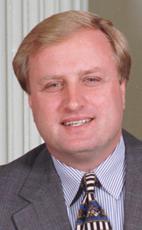Mr. Speaker, I want to thank my hon. friend and colleague for Scarborough-Rouge River.
I can say to the hon. member and to the House that the number is lower than the 24,000 being thrown around by the media. Approximately 10,000 of those individuals, would be claimants have been refused but because of previous policy directives have not been removed. For instance the individuals from the People's Republic of China as well as other countries fall into that category. As you know, Mr. Speaker, the government is
actively pursuing a strategy of how to clarify that status in fairness to them and to the system.
An anticipated one-third of those individuals are no longer in this country and therefore are not a financial drain. There are also individuals in detention and in our prisons and there are some cases where the processing of a particular case has fallen between the cracks as sometimes happens with governments.
I ask the member to recognize that the government has moved on allowing work permits for refugee claimants while they wait for their cases. We have had approximately a 70 per cent take-up of claimants asking for work permits. As the Prime Minister said moments ago, not only could we give them the dignity of work but also lessen the load on our social service programs.

